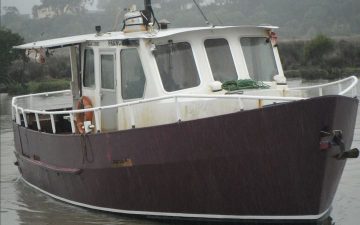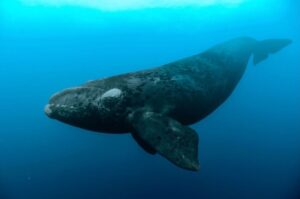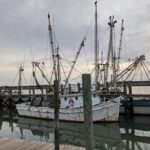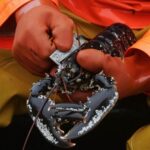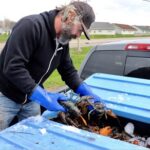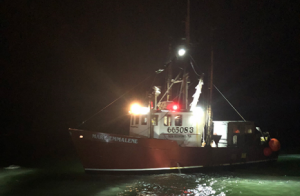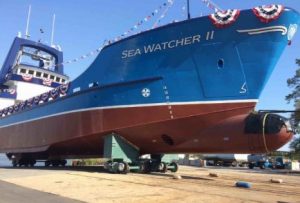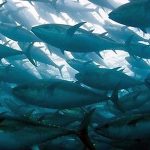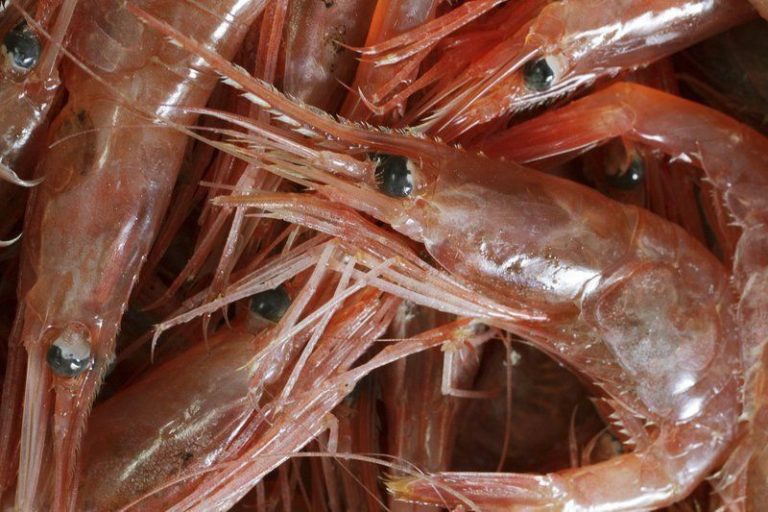Daily Archives: November 27, 2016
Commercial Fishing Boat Runs Aground in Montauk
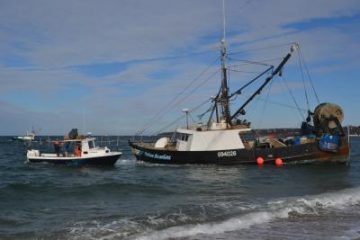 A 55-foot commercial a commercial fishing dragger, the Miss Scarlett, based in New London, Conn., ran aground on the beach along Navy Road in Montauk at about 6 a.m. Sunday near high tide. There were no injuries reported. The crew of the Miss Scarlett remained onboard the stranded vessel until they were picked up by a skiff from another boat around noon. The stranded vessel, which was located just west of the Port Royal, became a destination for families who flocked to the beach to take pictures of it throughout the morning. Read the rest here 17:34
A 55-foot commercial a commercial fishing dragger, the Miss Scarlett, based in New London, Conn., ran aground on the beach along Navy Road in Montauk at about 6 a.m. Sunday near high tide. There were no injuries reported. The crew of the Miss Scarlett remained onboard the stranded vessel until they were picked up by a skiff from another boat around noon. The stranded vessel, which was located just west of the Port Royal, became a destination for families who flocked to the beach to take pictures of it throughout the morning. Read the rest here 17:34
Two N.H. Fish and Game officers presented with Life Saving Award
 Two New Hampshire Fish and Game officers were presented with the Fish and Game’s Life Saving Award for their courageous actions rescuing two fishermen from a burning lobster boat in June. “On behalf of the citizens of the state of New Hampshire and the New Hampshire Fish and Game Department, we extend our sincere gratitude to these officers for their professionalism and exemplary performance under extreme circumstances. Thanks to their quick thinking and brave actions, two New Hampshire fisherman survived a life-threatening event,” said Fish and Game Law Enforcement Chief Kevin Jordan. On June 19, conservation officers Dale Gargac and Graham Courtney were patrolling the coast when they observed a boat on fire off the coast of Rye, officials said. When they arrived on scene, Gargac and Courtney found two fishermen in the water, suffering from the early stages of hypothermia while clinging to the stern of the burning boat, officers said. Read the story here 17:11
Two New Hampshire Fish and Game officers were presented with the Fish and Game’s Life Saving Award for their courageous actions rescuing two fishermen from a burning lobster boat in June. “On behalf of the citizens of the state of New Hampshire and the New Hampshire Fish and Game Department, we extend our sincere gratitude to these officers for their professionalism and exemplary performance under extreme circumstances. Thanks to their quick thinking and brave actions, two New Hampshire fisherman survived a life-threatening event,” said Fish and Game Law Enforcement Chief Kevin Jordan. On June 19, conservation officers Dale Gargac and Graham Courtney were patrolling the coast when they observed a boat on fire off the coast of Rye, officials said. When they arrived on scene, Gargac and Courtney found two fishermen in the water, suffering from the early stages of hypothermia while clinging to the stern of the burning boat, officers said. Read the story here 17:11
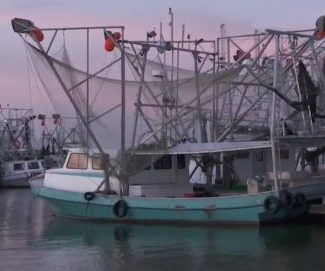
Threatened Catch
It’s the Sunday after Thanksgiving. And in case you’re tired of turkey, we have a helping of shrimp and a few questions. You may not think much about how the seafood gets to your plate.But the question of who’s catching it and where is at the center of a global controversy. To understand why, we head south to the Louisiana bayou. It’s where an industry that survived Hurricane Katrina and the BP oil spill is finding itself threatened with extinction by foreign competition. These fishermen could be Shrimpers Lost… and theirs could be a lesson for us all. Today we’re going shrimping in Venice, Louisiana. Acy Cooper is our guide. Sharyl Attkisson: How important is the shrimping business to your personally? Acy Cooper: It’s everything to me. You know, my family does it. My dad’s 80 years old, he still fishes. And my two boys has entered the business, and my daughter she married a fisherman. Louisiana’s shrimp industry has been a family affair for more than a century. Video, read the rest here 16:04
Lobster season on Nova Scotia’s southwest coast delayed by bad weather
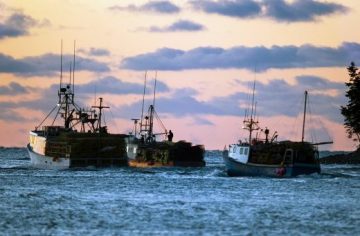 The lobster season on Nova Scotia’s southwest coast has been delayed by one day due to high winds a rough seas. The season was supposed to start Monday but has been put off until Tuesday morning at 6 a.m., said Graeme Gawn president of local 9 with the Maritime Fishermen’s Union. “It’s always frustrating because everybody is ready to go and they want to go, but nobody wants to get hurt and nobody wants to see their crews get hurt.” Gawn said the Department of Fisheries and Oceans made the decision Sunday morning on a conference call. The first day of the lobster season, referred to as dumping day, is when fishermen first set their lobster traps, it’s considered one of the most dangerous days of the entire season. Most fishermen are more than happy to wait until the weather is more cooperative to head out on the water, said Gawn. Read the rest here 12:24
The lobster season on Nova Scotia’s southwest coast has been delayed by one day due to high winds a rough seas. The season was supposed to start Monday but has been put off until Tuesday morning at 6 a.m., said Graeme Gawn president of local 9 with the Maritime Fishermen’s Union. “It’s always frustrating because everybody is ready to go and they want to go, but nobody wants to get hurt and nobody wants to see their crews get hurt.” Gawn said the Department of Fisheries and Oceans made the decision Sunday morning on a conference call. The first day of the lobster season, referred to as dumping day, is when fishermen first set their lobster traps, it’s considered one of the most dangerous days of the entire season. Most fishermen are more than happy to wait until the weather is more cooperative to head out on the water, said Gawn. Read the rest here 12:24
Effort to protect deep-sea coral has lobster industry on alert
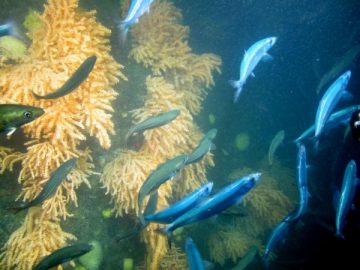 Over 400 Maine lobstermen could lose their traditional fishing territory under a proposal to protect deep-sea corals in the Gulf of Maine. The New England Fishery Management Council is considering a plan that would ban fishing in four designated coral zones spanning about 161 miles of federal waters in the Gulf of Maine – Mount Desert Rock, Outer Schoodic Ridge, Jordan Basin and Lindenkohl Knoll. Here, often on steep rock walls deep under water where sunlight cannot penetrate, scientists have found dense, delicate and slow-growing coral gardens of sea whips, fans and pens. During the cold-weather months, when 52-year-old Jim Dow usually fishes for hard-shell lobsters in deep federal waters, his buoys will encircle Mount Desert Rock, where the lobster is so plentiful that boats will sail for hours to drop traps there. As a result, fishermen call it the Meeting Grounds. He said word is just starting to spread about the coral protection plan, but he said the fishermen he has talked with say they didn’t even know there was coral in the deep canyons below. Read the rest here 10:16
Over 400 Maine lobstermen could lose their traditional fishing territory under a proposal to protect deep-sea corals in the Gulf of Maine. The New England Fishery Management Council is considering a plan that would ban fishing in four designated coral zones spanning about 161 miles of federal waters in the Gulf of Maine – Mount Desert Rock, Outer Schoodic Ridge, Jordan Basin and Lindenkohl Knoll. Here, often on steep rock walls deep under water where sunlight cannot penetrate, scientists have found dense, delicate and slow-growing coral gardens of sea whips, fans and pens. During the cold-weather months, when 52-year-old Jim Dow usually fishes for hard-shell lobsters in deep federal waters, his buoys will encircle Mount Desert Rock, where the lobster is so plentiful that boats will sail for hours to drop traps there. As a result, fishermen call it the Meeting Grounds. He said word is just starting to spread about the coral protection plan, but he said the fishermen he has talked with say they didn’t even know there was coral in the deep canyons below. Read the rest here 10:16
N.C. Wildlife Federation Rule Making Petition’s aim: Gear bans or resource protection?
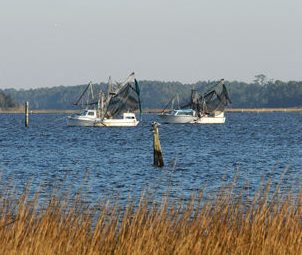 A conservation organization’s request that the state adopt stricter rules for shrimping and recreational spot and croaker isn’t sitting well with a local seafood industry advocacy group. Jerry Schill, president of the N.C. Fisheries Association, a nonprofit organization dedicated to promoting the state fishing industry, says the association thinks the petition for rulemaking from the N.C. Wildlife Federation, a nonprofit dedicated to protecting the state’s natural resources, will lead to gear bans that could put shrimping in North Carolina in jeopardy. However, David Knight, NCWF policy consultant, said the petition is meant to protect fish and their habitat and actually assist fishing communities by doing so. The Southern Environmental Law Center presented a petition for rulemaking, on behalf of the NCWF, to the N.C. Marine Fisheries Commission Nov. 17 in Kitty Hawk at the commission’s regular meeting. Read the rest here 08:57
A conservation organization’s request that the state adopt stricter rules for shrimping and recreational spot and croaker isn’t sitting well with a local seafood industry advocacy group. Jerry Schill, president of the N.C. Fisheries Association, a nonprofit organization dedicated to promoting the state fishing industry, says the association thinks the petition for rulemaking from the N.C. Wildlife Federation, a nonprofit dedicated to protecting the state’s natural resources, will lead to gear bans that could put shrimping in North Carolina in jeopardy. However, David Knight, NCWF policy consultant, said the petition is meant to protect fish and their habitat and actually assist fishing communities by doing so. The Southern Environmental Law Center presented a petition for rulemaking, on behalf of the NCWF, to the N.C. Marine Fisheries Commission Nov. 17 in Kitty Hawk at the commission’s regular meeting. Read the rest here 08:57
How the privatization of our oceans is sinking fishermen
 The town of St. George, off the Bering Sea near Alaska, was long home to some of the most robust pollock fishing in the country. But due to a fishing rights management scheme called “catch shares,” the town has no rights to fish its own waters and regularly watches their former industry literally pass them by. “Every year, the industry takes about $2 billion in gains out of this fish resource on the Bering Sea,” St. George Mayor Pat Pletnikoff tells Lee van der Voo in “The Fish Market.” “Not one plug nickel sticks to St. George.” Catch shares work by dividing our oceans just like any other physical property, creating theoretical property lines. Then the rights to fish different species in various sections are awarded to applicants — which could be individuals or companies — based on how much fish they catch over a certain period of time. While catch shares are credited with greater species management — the US government found in 2007 that of 230 species of fish, 92 were going quickly extinct due to overfishing — the catch-shares program has virtually privatized our oceans, destroying the livelihoods of many lifelong fishermen and other small businesses in the process. Read the rest here 08:14
The town of St. George, off the Bering Sea near Alaska, was long home to some of the most robust pollock fishing in the country. But due to a fishing rights management scheme called “catch shares,” the town has no rights to fish its own waters and regularly watches their former industry literally pass them by. “Every year, the industry takes about $2 billion in gains out of this fish resource on the Bering Sea,” St. George Mayor Pat Pletnikoff tells Lee van der Voo in “The Fish Market.” “Not one plug nickel sticks to St. George.” Catch shares work by dividing our oceans just like any other physical property, creating theoretical property lines. Then the rights to fish different species in various sections are awarded to applicants — which could be individuals or companies — based on how much fish they catch over a certain period of time. While catch shares are credited with greater species management — the US government found in 2007 that of 230 species of fish, 92 were going quickly extinct due to overfishing — the catch-shares program has virtually privatized our oceans, destroying the livelihoods of many lifelong fishermen and other small businesses in the process. Read the rest here 08:14






